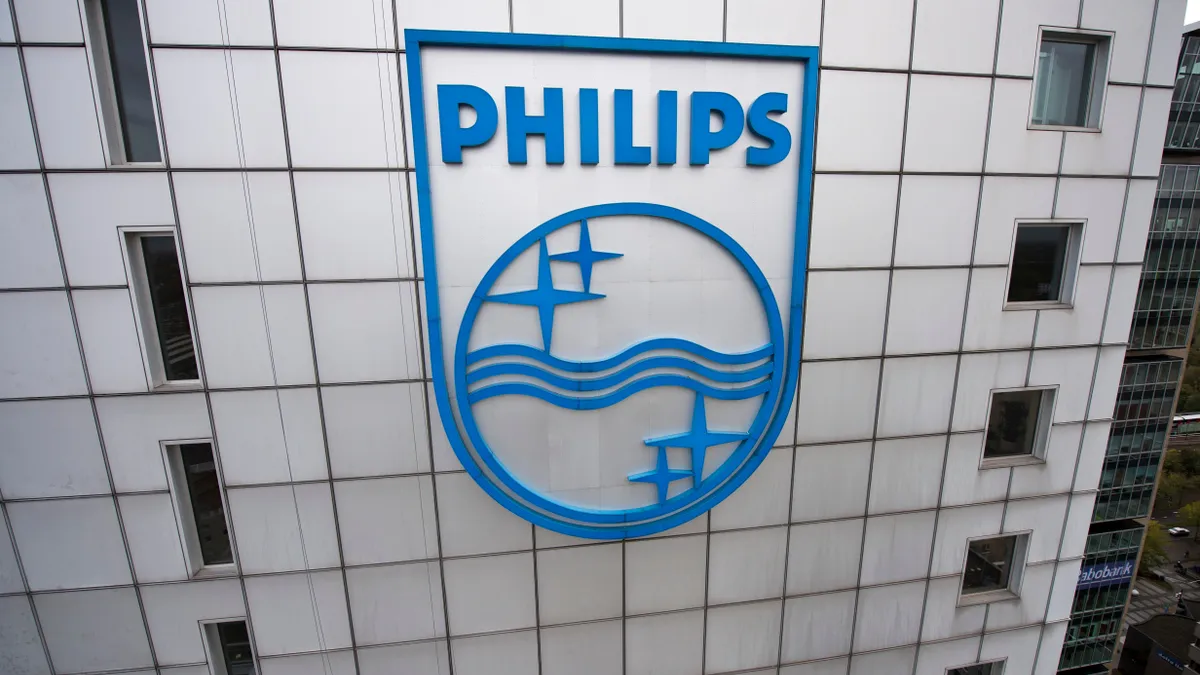UPDATE: Oct. 22, 2021: Philips CEO Frans van Houten told investors this week the company should see very strong growth in the second half of 2022 as its sleep business resumes and fights to recoup share. However, William Blair analysts warned that limited support during the recall to some providers is hurting brand credibility which could impact Philips’s ability to regain market share.
While William Blair analysts expect Philips to regain share, it may not reach the same levels as prior to the recall in the largely two-player market. Overall, the analysts see rival ResMed as the major beneficiary of a "more durable" market share loss.
"Our research suggests that despite four months since the initial recall announcement, there remains a lack of transparency and communication with providers on even more basic steps such as whether specific patients have registered their recalled devices with Philips," the analysts wrote.
Nonetheless, van Houten on Monday's third-quarter earnings insisted that Philips is prioritizing its communication to regulators and doctors regarding the millions of sleep devices potentially impacted by the FDA's Class I recall.
ResMed in August forecasted the Philips recall will add up to $350 million to its sales of sleep apnea and ventilator devices over the next 12 months. William Blair analysts contend ResMed's guidance of $300 million to $350 million in incremental sales is "achievable and perhaps conservative."
While the analysts acknowledge that ResMed is limited in its ability to fulfill the extensive demand for its products, they say the company has been transparent throughout the recall and is setting allocation standards for providers that match available supply. ResMed will report its fiscal first-quarter earnings on October 28, when the analysts hope to learn more about current supply conditions for the company.
Dive Brief:
- Philips on Monday reported third-quarter sales of 4.2 billion euros, a 7.6% decline compared to last year's period, due to the negative impacts of its sleep and respiratory product recall and supply chain issues.
- The Dutch company last month received FDA authorization to start a repair and replacement program of millions of its DreamStation CPAP devices linked to cancer concerns, so far producing a total of approximately 750,000 repair kits and replacement devices, of which more than 250,000 have reached customers. Patients have registered 3.3 million of the affected devices so far, up from 2.2 million last quarter. Philips is a defendant in a number of lawsuits from users of the impacted devices and individual personal injury claims.
- CEO Frans van Houten said third-quarter sales were impacted by a 150 million euro headwind due to the recall. While van Houten told investors that the company has "mobilized all necesary resources" for corrective actions, Philips is unable to reliably estimate the financial effect and potential associated liabilities.
Dive Insight:
Civil and personal injury claims filed against Philips over the recall of more than 3 million sleep apnea devices, whose sound abatement foam has possible cancer risks, are weighing on the company. In a Pennsylvania court, Bloomberg reported that Philips is facing more than 100 U.S. lawsuits that have been consolidated by a federal judge in Pittsburgh.
On Monday's earnings call, van Houten said it is "too early to draw any conclusions or to talk about the merits and the timelines to handles claims at this stage."
"The complaint ratio has gone up post the [recall] announcement. That is not unusual as people are made aware of the recall and put in their own complaint. The nature and severity of the complaints has not materially changed from before the field safety notice, which reassures us that there's not suddenly very bad situations coming out of the woodwork," van Houten told investors, noting that no deaths related to the recall have so far been reported.
For now, van Houten said Philips is focusing on patients and the corrective actions in response to the recall.
The company is continuing its own lab testing and analysis to gauge potential foam risks to patients as well as getting outside expert assessments, according to van Houten. Philips will make this information available to regulatory bodies and healthcare providers in the fourth quarter.
"We have involved more test houses and also third-party specialists, experts who can give their opinion about the compounds and whether they are toxic or not, characterizing the risk in a much more sophisticated manner," van Houten said.
Philips' repair and replacement program is underway in the U.S. and several other countries including Canada, China and Europe. The company said the program's production volume rate has approximately doubled to 55,000 units per week and are on track to reach 80,000 units per week in the fourth quarter, with an expectation of completing the repair and replacement program within 12 months.
Regarding ongoing supply chain issues, van Houten said the company "continues to see uncertainty related to COVID-19" leading to longer lead times in the third quarter.
"We expect this headwind to continue in the fourth quarter," the CEO warned. "We now expect to deliver low-single-digit comparable sales growth with a modest adjusted EBITA margin improvement for the full-year 2021."
Still, van Houten told investors Monday the company expects to resume its "growth and margin expansion trajectory" in 2022 as the company addresses recall and supply chain challenges, with its continued goal of high-teens profitability by 2025.












